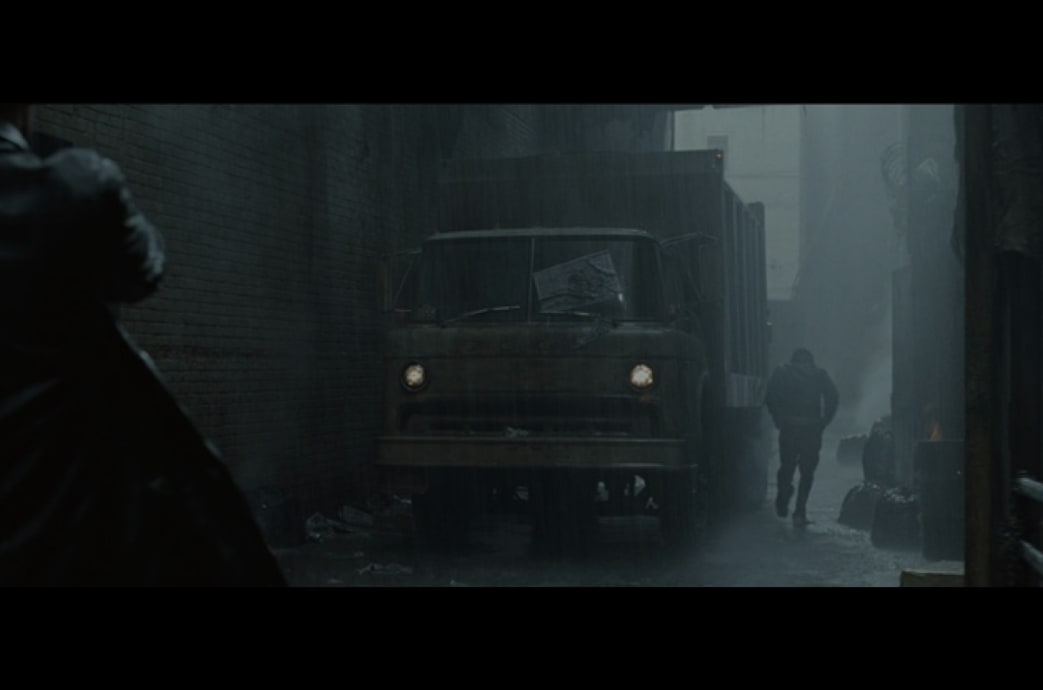The world isn’t black and white, nor is it a true ‘grey area’. More often than not, in the world of crime and abuse, there’s regularly a slash of crimson added into the mix. People don’t always agree that the punishment fits the crime, especially when it involves minors. Alexander Black’s short-film Lycanthropy deals with the unpleasant reality of child pornography and its impact on those who are duty-bound to confront it.
Detective Chief Inspector Kessler, your typically smarmy and overconfident police offer, begins to take matters into his own hands. He’s disenfranchised by the organisation he works for and, as we discover, is suffering from some separation issues altering his thought process. The disappearance of a young girl infuses him with a bloodthirst which stretches the hunt beyond the professional and into the primal.
Quite literally ‘seeing red’, a distortion of sorts overcomes Kessler as the events twist in his mind, seemingly under extreme pressures from a failed marriage, substance abuse and his failings in finding the girl. This dynamic split, which offers the film’s title, reveals itself both from an editing perspective and performance. It’s one of the more well-done aspects of Black’s production, and while the wolf imagery is a touch on-the-nose, Paul Duncan’s conveyance of his descent into an unhinged mindset (especially through simple lines such as “I didn’t do this”) has enough emphasis in the correct place to reinforce the question of just who is the monster here, and who precisely is in control.
Beyond performance and direction, Lycanthropy’s score plays a large function in the storytelling. Rob Northcott’s musical composition is fitting of a thriller-detective piece, but contains an infusion of sharp notes when emotions are taut. Further, canny use of sound effects in the editing process proffer clues and further insights into the characters’ actions, and for the keen listener an answer to the film’s cliff-hanger. This is perhaps best demonstrated in an otherwise mundane, anticipated scene, where Kessler laments his failed marriage and the time not spent with his daughter, only for the radio to distort the abuses hurled at the inspector, revealing how unstable he is becoming.
It strikes as peculiar that with such delicacy taken in the scoring, Black’s writing can dip, and degrees of subtlety vacate Lycanthropy. There’s a short timescale to get plot points across to the audience, but the golden rule of ‘show don’t tell’ is broken frequently. Does it distract from the overall film? Not necessarily. Is it understandable that a short will cut to exposition? Assuredly. There are just occasions in which a look – or even audio cues – are enough without needed reinforcement.
There’s a solid foundation for the world-building at play here too, as the film’s cinematography is impressive. Kurt Riddell’s photography conjures the tone of a modestly budgeted televised show. Kessler has room to flex his body, to allow a physicality to emerge in tandem with his deteriorating sanity. Lighting often reflects the tension, for the most part bordering on monochromatic, devoid of colour in the sea of browns and greys. This, of course, makes for a stark impact at the splices of wolf footage, the symbolic bestial nature of Kessler’s rage emerging.
Lycanthropy ticks all the boxes for a television pilot, with a sense of checking popular responses and tropes, but there is uniqueness. Black’s short film captures a twofold, malformed monster emerging from the depths of human capability. There are the abhorrent actions of a man exploiting minors, and the defragmenting sanity of someone who places a personal vendetta upon the crime. Lycanthropy frames itself well, and despite procedural moments, is a tightly constructed film which delves into depravity more than the viewer may care to venture.
